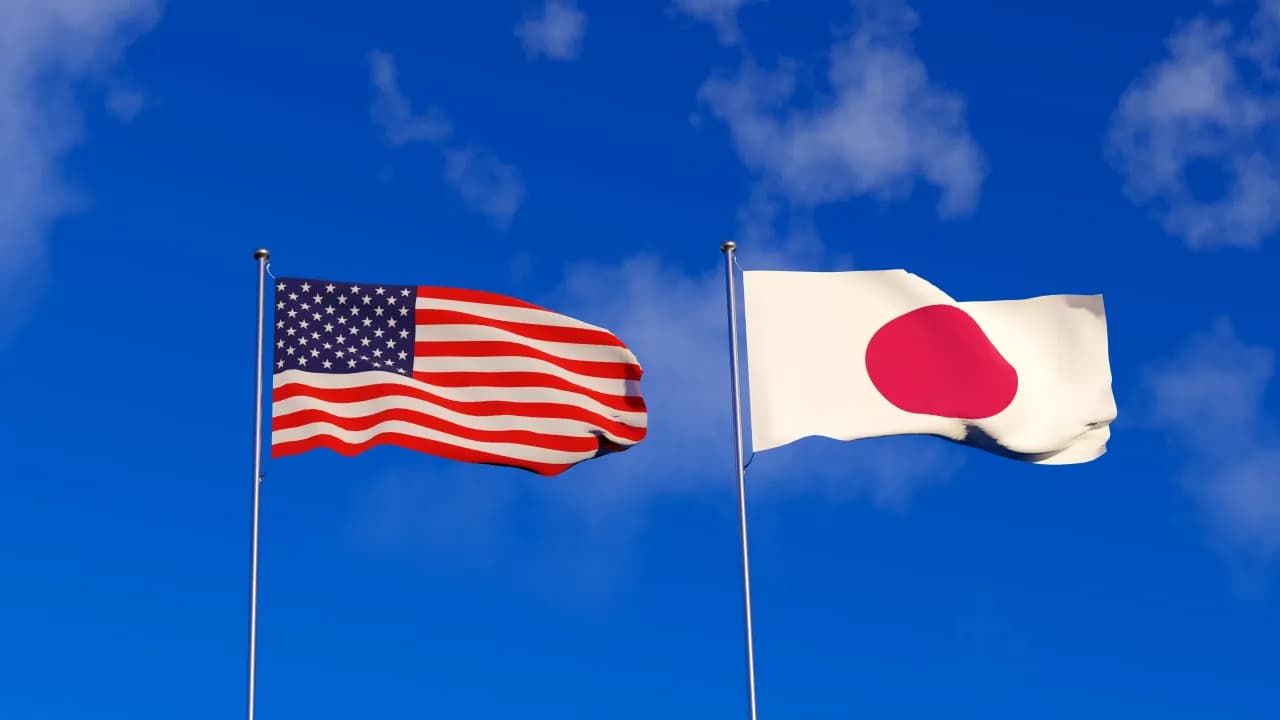The agreement eases pressure on Japan’s auto industry, a key employer and wage driver, though uncertainty over when the cuts will take effect continues to cloud the outlook.
The U.S. will end the stacking of universal tariffs on Japan and cut car levies to 15% as promised, Tokyo’s top trade negotiator Ryosei Akazawa said after meetings in Washington with Commerce Secretary Howard Lutnick and Treasury Secretary Scott Bessent.
The U.S. expressed regret that the stacking rule had been applied despite a verbal agreement and pledged to refund overpaid levies, though no timeline was set for implementation, according to a Bloomberg report.
The agreement follows Akazawa’s push earlier this week for the immediate implementation of tariff cuts under last month’s bilateral trade deal, which lowers tariffs on Japanese car imports to 15% from a combined 27.5% and reduces duties on other goods from 25% to 15%.
During those talks, Japan also sought confirmation that “no stacking” rules would apply, as they do for the European Union, and that products already facing higher tariffs, such as beef, would not be subject to additional levies.
The stacking system had added a 15% universal tariff on top of existing rates, leaving Japanese automakers paying 27.5%, which included a 2.5% base, along with a new 25% tariff imposed by the Trump administration.
Akazawa said the 15% rate will replace lower existing levies once exemptions take effect, while higher rates will remain unchanged. He did not expect the process to take anywhere from six months to a year.
Uncertainty over when the tariff cuts will take effect is weighing on Japan’s auto industry, a sector that employs roughly 8% of the nation’s workforce and plays a key role in driving wage growth.
Toyota Motor on Thursday cut its annual operating profit forecast to 3.2 trillion yen ($21.73 billion) from 3.8 trillion yen and said US tariffs could cost 1.4 trillion yen in profit. First-quarter profit dropped 11% to 1.17 trillion yen but beat expectations as price increases offset some of a 450 billion yen hit from tariffs. The revised guidance marks Toyota’s clearest assessment yet of the impact, a sharp increase from its earlier estimate of 180 billion yen for April and May.
Honda Motor, on the other hand, lifted its full-year profit forecast to 700 billion yen from 500 billion yen, saying the tariff burden turned out lighter than expected.
However, the April-June profit of 244 billion yen fell short of forecasts after a 125 billion yen tariff was imposed, while sales eased by 1% to 5.3 trillion yen. Honda said the lack of certainty over when the tariff cut will take effect continues to weigh on planning.
On Stocktwits, retail sentiment was ‘neutral’ for Honda Motor with ‘normal’ message volume, while Toyota Motor saw ‘bullish’ sentiment and ‘high’ message volume.
Honda’s U.S. shares are up 10.7% so far this year, while Toyota’s are down 6% over the same period.
($1=147.22 yen)
For updates and corrections, email newsroom[at]stocktwits[dot]com.<
